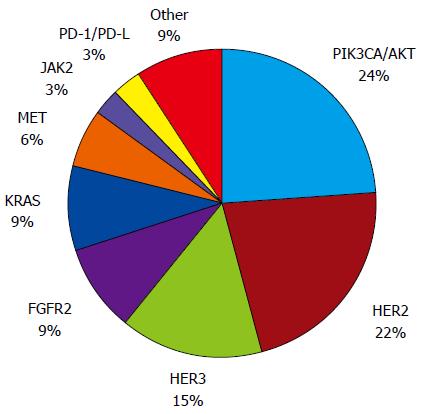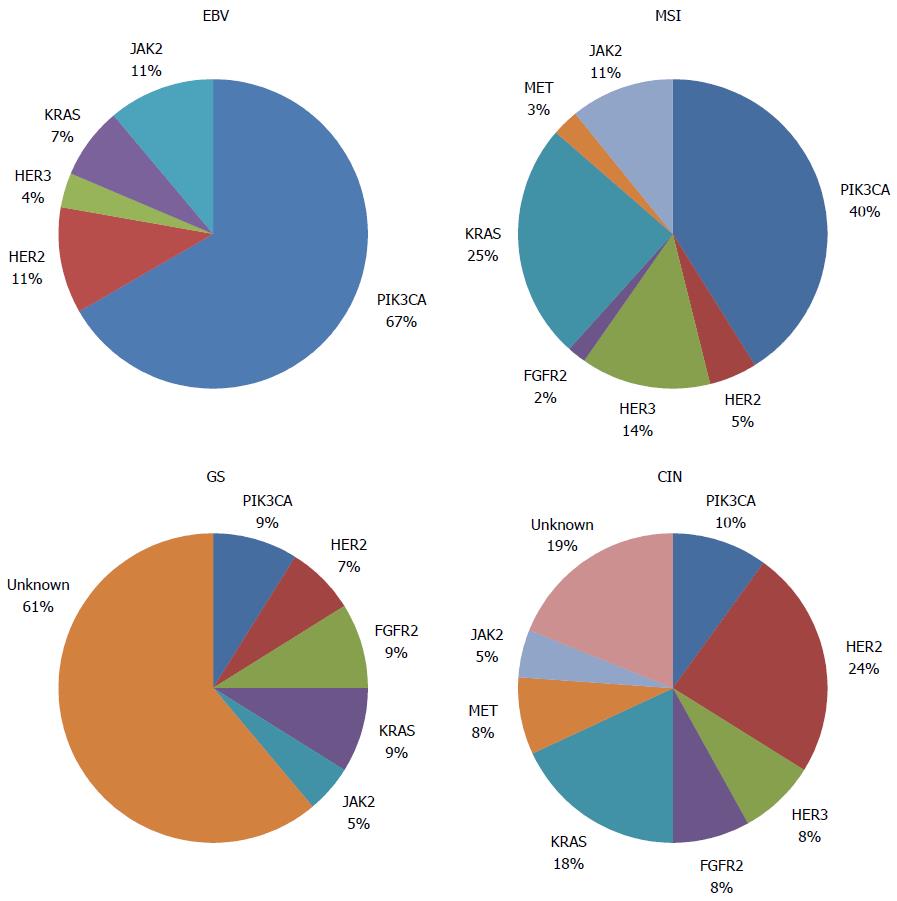Copyright
©The Author(s) 2016.
World J Gastroenterol. Jan 21, 2016; 22(3): 1160-1171
Published online Jan 21, 2016. doi: 10.3748/wjg.v22.i3.1160
Published online Jan 21, 2016. doi: 10.3748/wjg.v22.i3.1160
Figure 1 Proportion of genetic abnormalities in gastric cancer.
PIK3CA/AKT: Phosphatidylinositol 3-kinase CA/AKT; HER2: Human epidermal growth factor receptor 2; HER3: Human epidermal growth factor receptor 3; FGFR2: Fibroblast growth factor receptor 2; KRAS: Kirsten rat sarcoma oncogene; MET: Mesenchymal-epithelial transition; JAK2: Janus kinase 2; PD-1/PD-L1: Programmed cell death-1/ Programmed cell death-ligand 1.
Figure 2 Proportion of genetic abnormalities in distinct gastric cancer subtypes.
EBV: Epstein-Barr-positive; MSI: Microsatellite-instability; GS: Genomically stable; CIN: Chromosomal instability; PIK3CA/AKT: Phosphatidylinositol 3-kinase CA/AKT; HER2: Human epidermal growth factor receptor 2; HER3: Human epidermal growth factor receptor 3; FGFR2: Fibroblast growth factor receptor 2; KRAS: Kirsten rat sarcoma oncogene; MET: Mesenchymal-epithelial transition; JAK2: Janus kinase 2; PD-1/PD-L1: Programmed cell death-1/programmed cell death-ligand 1.
- Citation: Jácome AA, Coutinho AK, Lima EM, Andrade AC, Santos JSD. Personalized medicine in gastric cancer: Where are we and where are we going? World J Gastroenterol 2016; 22(3): 1160-1171
- URL: https://www.wjgnet.com/1007-9327/full/v22/i3/1160.htm
- DOI: https://dx.doi.org/10.3748/wjg.v22.i3.1160














